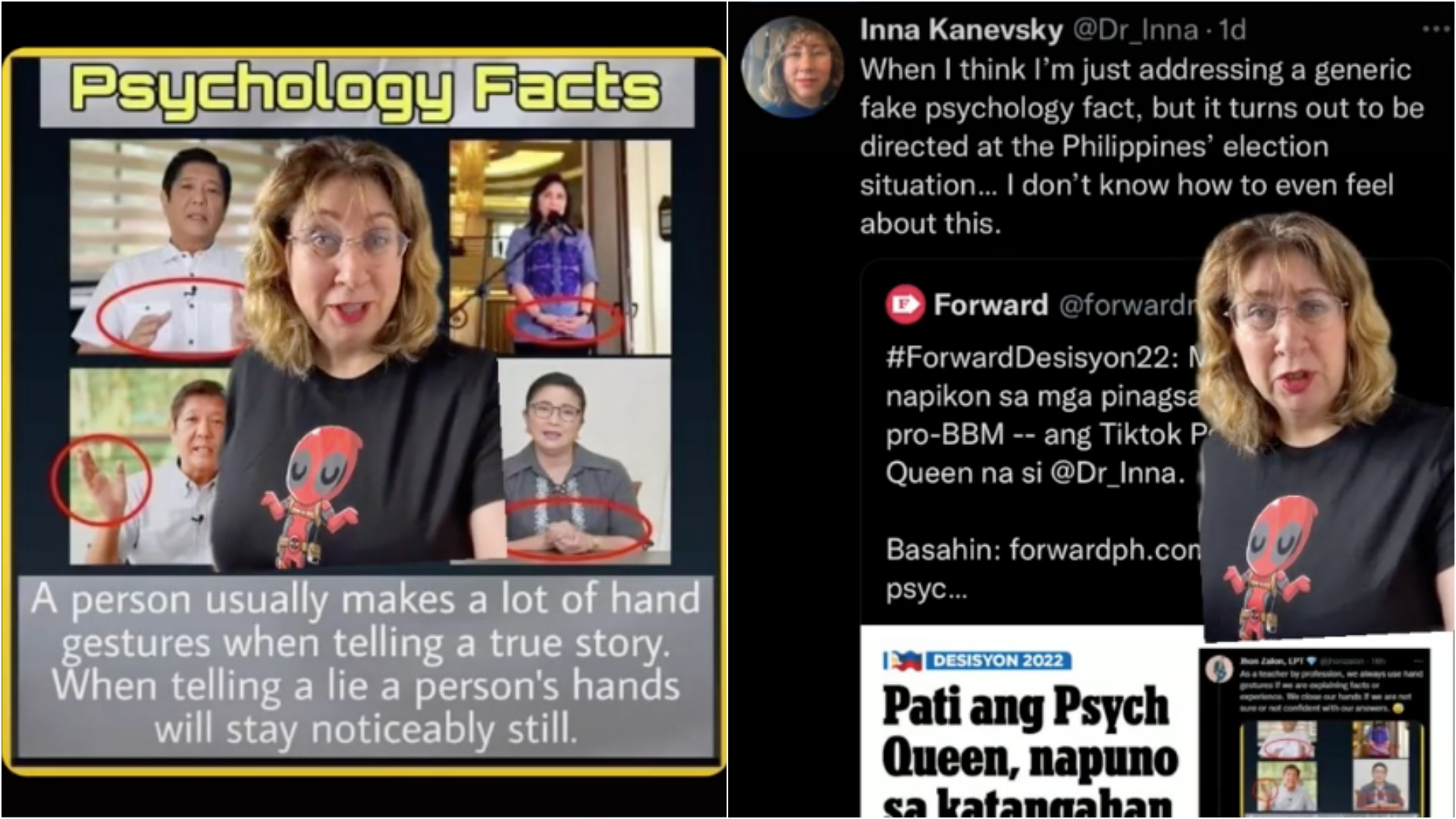You know how in school they always remind you to cite your sources? Well, this doesn’t only prevent plagiarism (although this is a major part of it) but it also helps validate the credibility of what we say. This continues to be true even outside of school, even without a professor having to tell us to do so.
Dr. Inna Kanevsky, a psychology professor who has 1M followers on TikTok and over 28.5M likes, has gone viral on Tiktok for her credible explanations of psychology facts.
Dr. Inna recently debunked a fake psychology fact on Twitter about the unreliability of using body language as a way to detect if someone is lying. With her response to this fake psychology fact, Dr. Inna unknowingly dipped her toes into Philippine politics.
When I think I’m just addressing a generic fake psychology fact, but it turns out to be directed at the Philippines’ election situation… I don’t know how to even feel about this. https://t.co/wIeQGAEhrc
— Inna Kanevsky (@Dr_Inna) October 8, 2021
In one of her videos, Dr. Inna addresses this and the use of misinformation— including psychology misinformation— in the political landscape of the Philippines.
@dr_inna In retrospect, this use of fake psychology may be of interest in other places too.
While being grateful to have shed some light on the situation, Dr. Inna also called out how other people were saying pretty much the same thing as her though “it’s really sad that that wasn’t enough”.
Although the original user that posted the debunked “psychology fact” did indeed post their “sources” for their claim, Dr. Inna reminds us that it is not enough to be satisfied with simply having sources— we must evaluate the credibility and authenticity of these.
Oh and Mr. Zalon, (@jhonzalon )
When you cite actual empirical studies as evidence of that specific claim, we can discuss their merits. Blog posts, Healthline, or commentary by individual psychologists without citations are not empirical evidence.— Inna Kanevsky (@Dr_Inna) October 9, 2021
Are you citing a scholarly article or a comprehensive research study? Or are you using a sketchy or unverified website to help support your claims?
In most of Dr. Inna’s videos, she makes sure to cite all her sources for her viewers to see. She lists down the works she cites within her videos and sometimes also includes additional sources for further reading.
By request: humans can’t really rely on body language to detect lying. And of course, using random photographs is even more useless than watching people talk. Most sources shown in the video will be linked in the thread. pic.twitter.com/ngtzP55f2l
— Inna Kanevsky (@Dr_Inna) October 10, 2021
When it comes to making claims and sharing “facts” on the internet, faking it till you make it—a.k.a. making baseless claims—ain’t gonna cut it, honey. We shouldn’t fall too easily for claims simply because they were made with conviction. Take this as another reminder to always scroll with a critical eye, do your own research, and make sure to think twice before posting. POP!/GC
Other POP! stories you might like:
How algorithms affect the spread of information on social media
This study explains why social media arguments are so toxic
Devious licks: The TikTok trend that had students stealing stuff from school



